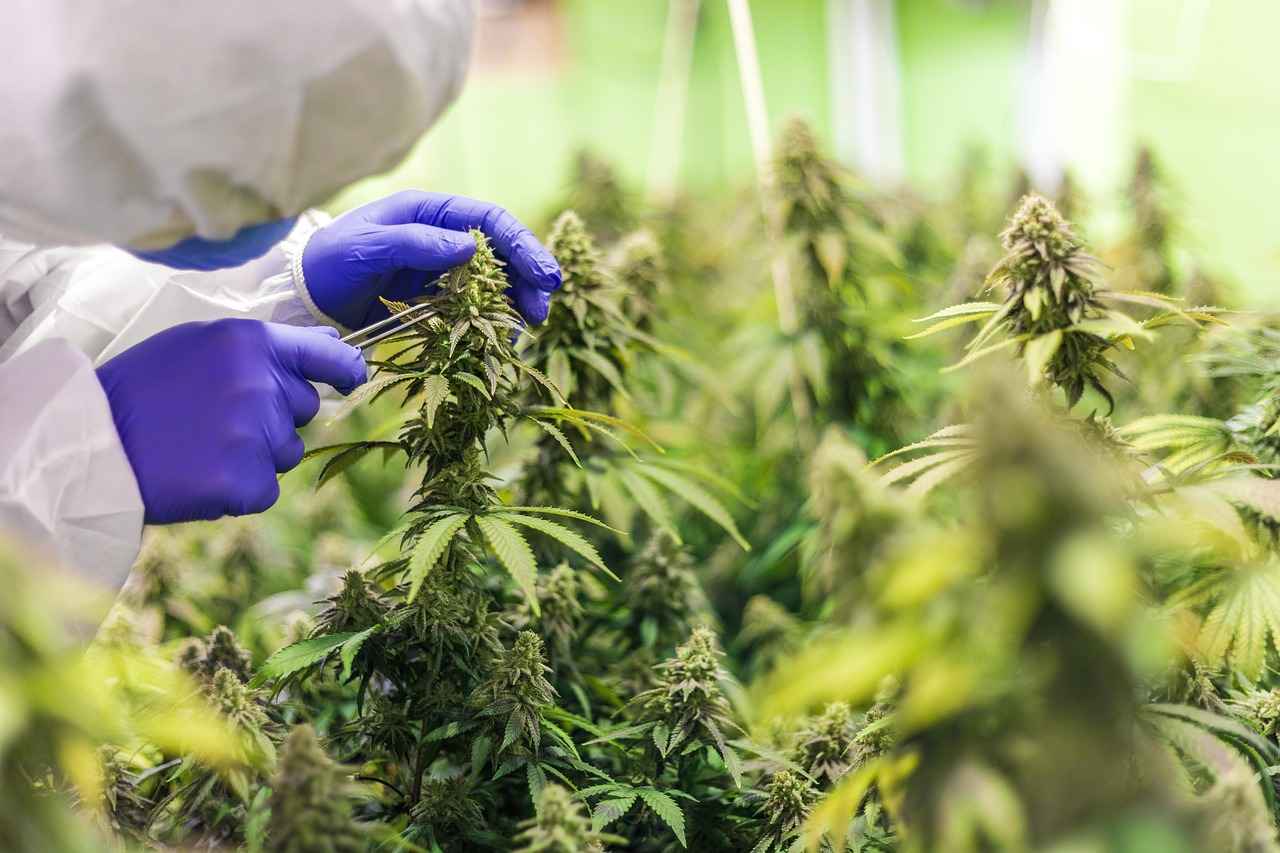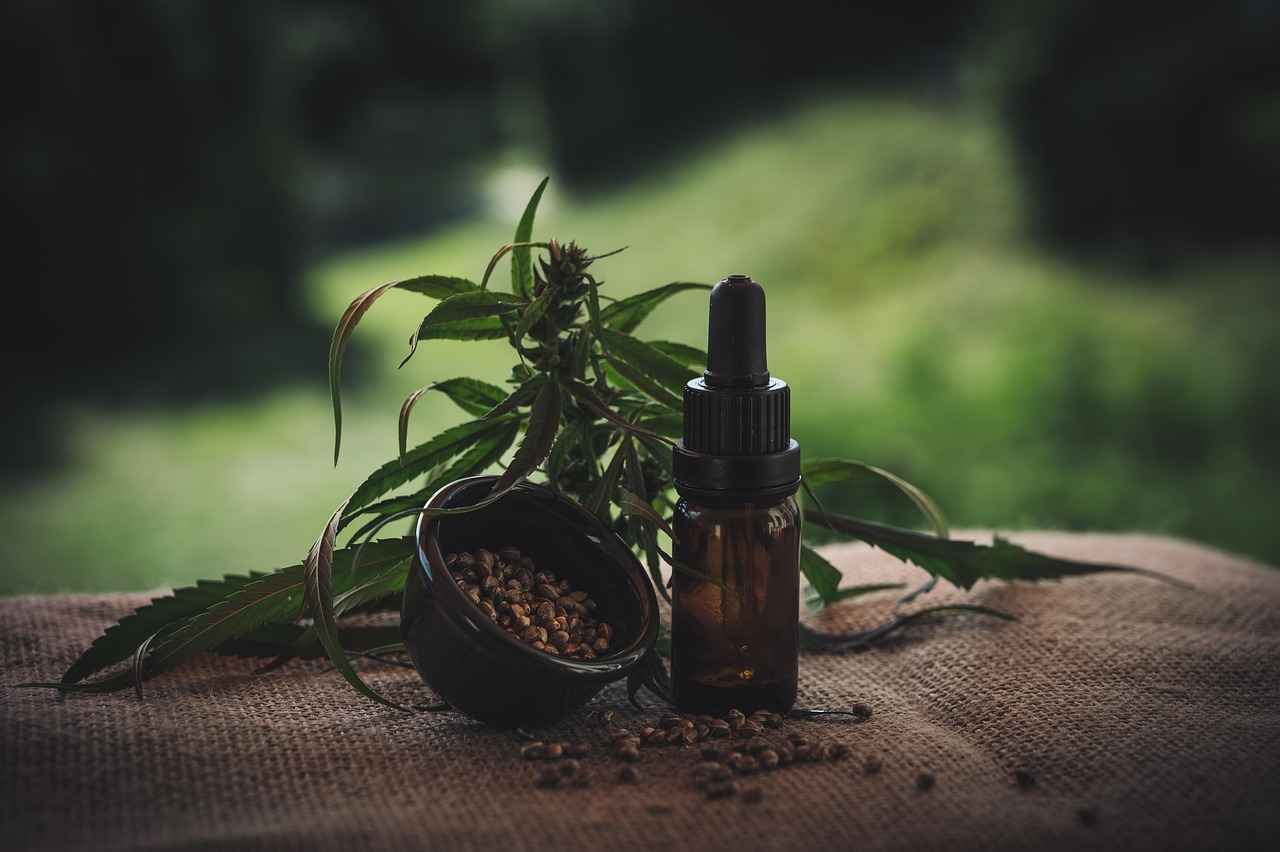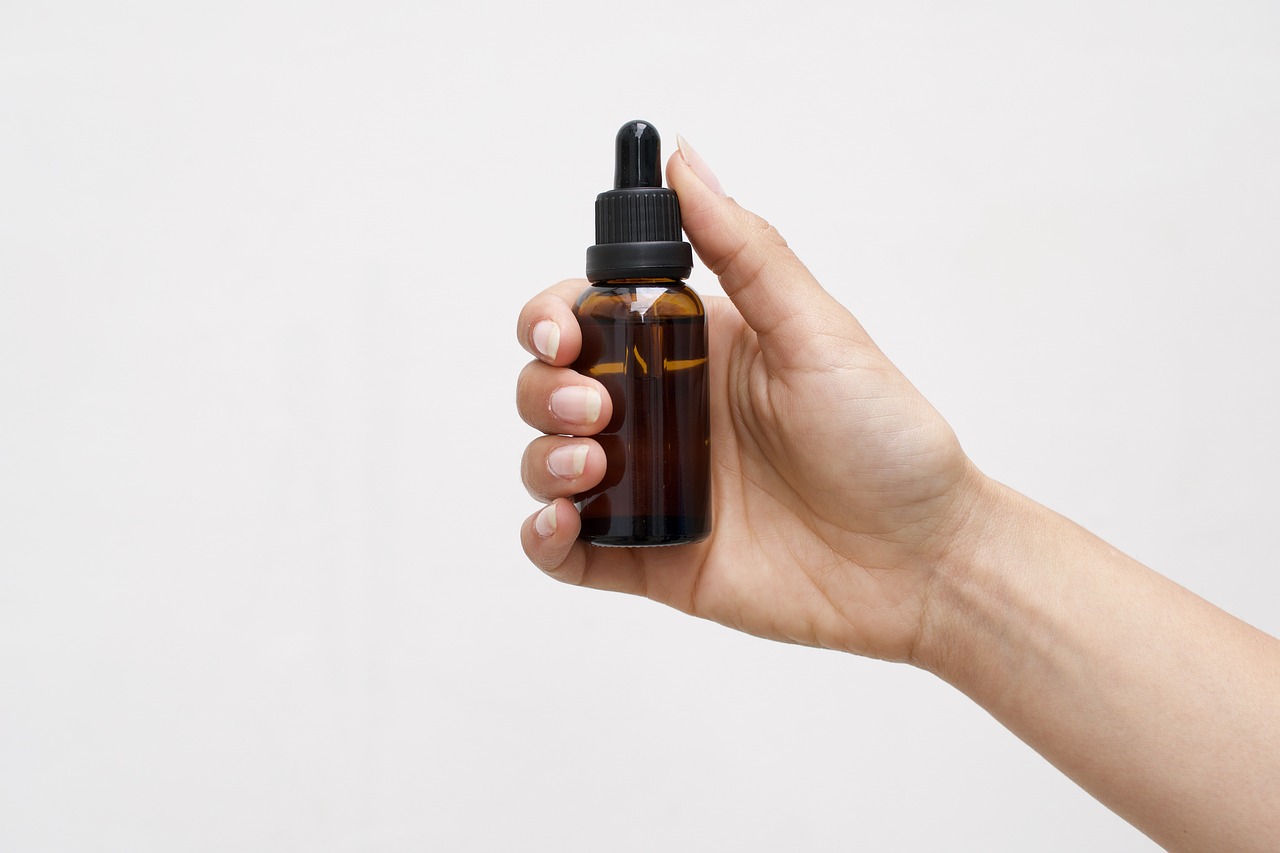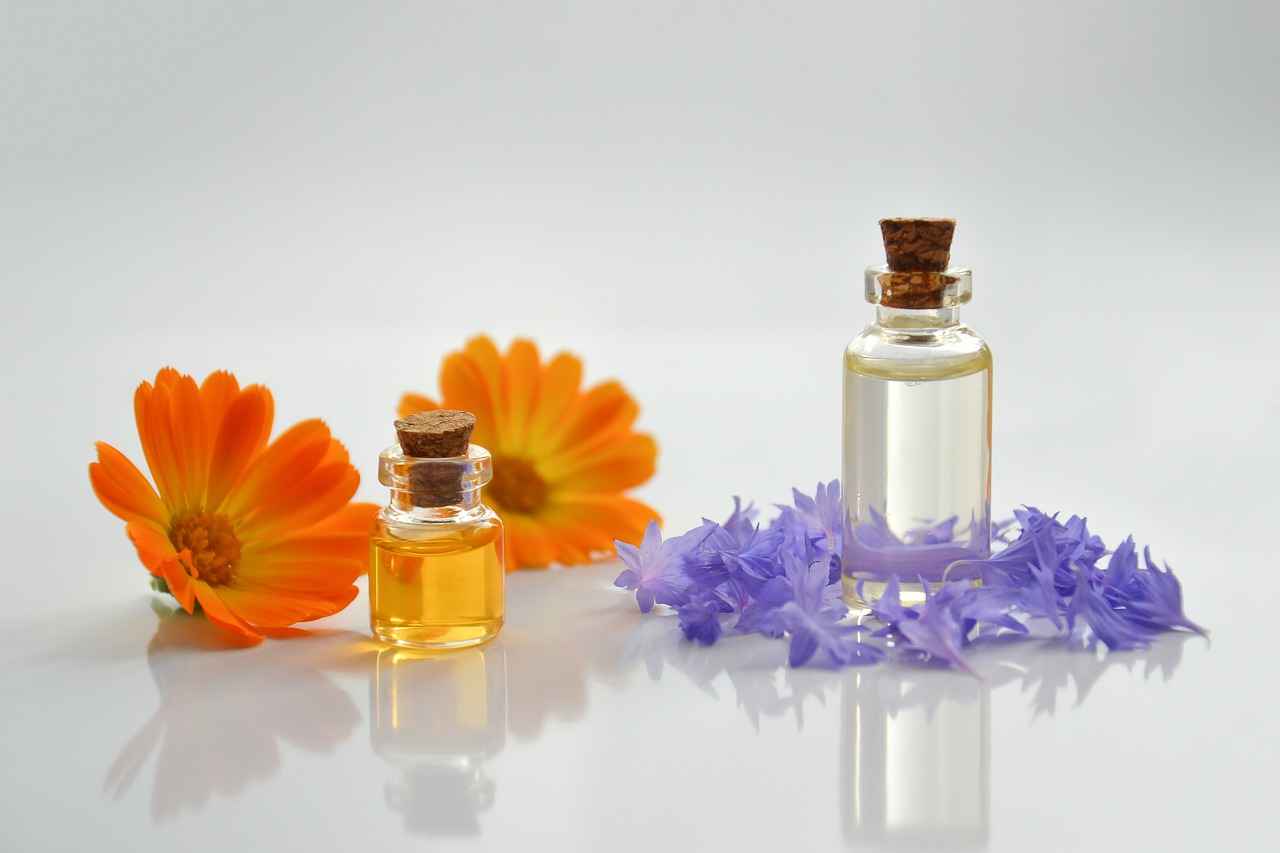This article delves into the potential of Cannabidiol (CBD) as a natural remedy for anxiety. With growing interest in alternative treatments, CBD has emerged as a promising option for those seeking relief from anxiety-related symptoms. This piece will explore its benefits, mechanisms of action, and practical applications.
What is CBD and How Does it Work?
Cannabidiol (CBD) is a non-psychoactive compound found in the cannabis plant. It interacts with the body’s endocannabinoid system, which plays a crucial role in regulating various physiological processes, including mood and stress response. By modulating the endocannabinoid system, CBD may help alleviate anxiety symptoms.
The Science Behind CBD and Anxiety Relief
Numerous studies have investigated the efficacy of CBD in reducing anxiety. Research indicates that CBD can influence serotonin receptors in the brain, which are known to affect mood and anxiety levels. This mechanism may explain why many users report feeling calmer and more relaxed after using CBD.
Clinical Studies on CBD for Anxiety
- Several clinical trials have shown promising results, with participants experiencing significant reductions in anxiety symptoms.
- These studies often employ varied methodologies, including controlled dosages and different forms of CBD.
How to Use CBD for Anxiety
CBD is available in various forms, including oils, capsules, and edibles. It’s essential to start with a low dose and gradually increase it to find the optimal amount for individual needs. Consulting a healthcare provider can provide personalized guidance.
Potential Side Effects and Considerations
While CBD is generally well-tolerated, some users may experience side effects such as fatigue, diarrhea, or changes in appetite. It’s important to consider potential interactions with other medications and seek professional advice before starting any new treatment.
Choosing the Right CBD Product
When selecting a CBD product, look for high-quality options from reputable brands. Pay attention to third-party lab testing, ingredient transparency, and extraction methods to ensure safety and efficacy.
Conclusion: The Future of CBD in Anxiety Treatment
In summary, CBD holds great promise as a natural remedy for anxiety. As research continues to evolve, it may offer new avenues for treatment, providing hope for those struggling with anxiety disorders.

What is CBD and How Does it Work?
Cannabidiol (CBD) is a naturally occurring compound found in the cannabis plant, specifically in hemp. Unlike its more famous counterpart, tetrahydrocannabinol (THC), CBD does not produce psychoactive effects, making it a popular choice for those seeking therapeutic benefits without the high. In this section, we will explore how CBD interacts with the endocannabinoid system (ECS) and its potential role in alleviating anxiety.
The ECS is a complex cell-signaling system that plays a crucial role in regulating various physiological processes, including mood, stress response, and emotional regulation. It consists of receptors, endocannabinoids, and enzymes. CBD primarily interacts with the two main receptors of the ECS: CB1 and CB2. While CB1 receptors are predominantly found in the brain and central nervous system, CB2 receptors are more common in the immune system and peripheral tissues.
When CBD is consumed, it can enhance the body’s natural levels of endocannabinoids, promoting a state of balance and homeostasis. This interaction has been linked to a reduction in anxiety symptoms. Research suggests that CBD may help to modulate serotonin levels in the brain, which is a neurotransmitter that plays a significant role in mood regulation. By influencing serotonin receptors, CBD can potentially improve mood and reduce feelings of anxiety.
Moreover, CBD has been shown to have anti-inflammatory and neuroprotective properties, which may contribute to its calming effects on the mind and body. Many individuals report feeling more relaxed and less anxious after using CBD, making it an attractive option for those seeking natural remedies for anxiety management.
In summary, CBD interacts with the endocannabinoid system in a way that may help alleviate anxiety symptoms by promoting balance in the body’s physiological processes. As research continues to unfold, the understanding of CBD’s full potential in anxiety treatment will likely expand, offering hope to many seeking relief.

The Science Behind CBD and Anxiety Relief
In recent years, Cannabidiol (CBD) has gained significant attention as a potential treatment for anxiety disorders. This section explores the scientific research that supports the efficacy of CBD in alleviating anxiety symptoms, providing a comprehensive overview of key studies and their implications for mental health treatment.
Numerous clinical trials have been conducted to evaluate the effects of CBD on anxiety. One notable study published in the journal Neurotherapeutics reviewed several clinical trials and found that CBD significantly reduced anxiety in both animal and human subjects. Participants reported decreased levels of anxiety during public speaking tasks, suggesting that CBD may help manage situational anxiety effectively.
Additionally, a randomized controlled trial published in JAMA Psychiatry highlighted that CBD could reduce anxiety in individuals with social anxiety disorder. The study involved participants receiving either CBD or a placebo before a public speaking event. Those who received CBD experienced significantly lower anxiety levels compared to the placebo group, indicating its potential as a viable treatment option.
Furthermore, animal studies have also contributed valuable insights into the mechanisms by which CBD may alleviate anxiety. Research has shown that CBD interacts with serotonin receptors in the brain, which play a crucial role in regulating mood and anxiety. This interaction may enhance serotonin signaling, leading to improved emotional regulation and reduced anxiety symptoms.
Overall, the evidence from both clinical and animal studies suggests that CBD may serve as a promising natural remedy for anxiety. However, it is essential to approach its use with caution and consult healthcare professionals for personalized advice. As research continues to evolve, the potential for CBD in anxiety treatment appears to be significant, offering hope for those seeking alternative therapies.
Clinical Studies on CBD for Anxiety
This section provides an in-depth examination of pivotal clinical trials that have assessed the effectiveness of Cannabidiol (CBD) in alleviating anxiety symptoms. The growing interest in CBD as a potential therapeutic agent has led to numerous studies aimed at understanding its impact on mental health.
One of the notable studies, conducted by Blessing et al. (2015), involved a comprehensive review of existing research on CBD and anxiety. The authors concluded that CBD has the potential to reduce anxiety in both animal and human studies, highlighting its anxiolytic properties. The review emphasized the need for further clinical trials to better understand the dosage and long-term effects of CBD.
Another significant trial was carried out by Crippa et al. (2011), which investigated the effects of CBD on individuals with social anxiety disorder. Participants who received CBD reported significantly lower anxiety levels during public speaking tasks compared to those who were given a placebo. This study utilized a double-blind, randomized design, ensuring the reliability of the results.
Furthermore, a randomized controlled trial conducted by Shannon et al. (2019) focused on patients suffering from anxiety and sleep disorders. The results indicated that CBD administration resulted in a marked decrease in anxiety scores, with many participants experiencing improved sleep quality. This trial utilized a robust methodology, including pre- and post-treatment assessments, to gauge the efficacy of CBD.
In summary, the evidence from these clinical trials suggests that CBD may serve as a promising option for individuals seeking relief from anxiety. The methodologies employed in these studies, such as randomized controlled designs and objective assessments, lend credibility to the findings. As research continues to evolve, it is crucial for future studies to address the optimal dosages and long-term effects of CBD on anxiety management.
Evidence from Animal Studies
Animal studies have played a crucial role in unraveling the complexities of how Cannabidiol (CBD) interacts with anxiety-related behaviors. Through various experimental models, researchers have been able to observe the effects of CBD on anxiety in a controlled environment, providing valuable insights that inform human research.
One significant discovery from animal studies is the ability of CBD to reduce anxiety-like behaviors in rodents. For instance, studies have shown that when administered CBD, rats exhibit decreased signs of anxiety in situations that typically induce stress, such as the elevated plus maze and the open field test. These findings suggest that CBD may help modulate the brain’s response to anxiety-provoking stimuli.
Furthermore, animal studies have indicated that CBD interacts with the endocannabinoid system, particularly influencing serotonin receptors. This interaction is believed to play a vital role in enhancing mood and reducing anxiety symptoms. The 5-HT1A serotonin receptor is a key target for CBD, and its activation has been linked to anxiolytic (anxiety-reducing) effects.
Another important aspect of animal research is the exploration of dosage and administration methods. Studies have varied in the amounts of CBD used and the routes of administration, including oral and intranasal delivery. This variability helps to identify optimal dosing strategies that could translate to effective human treatments.
In summary, the contributions of animal studies to our understanding of CBD’s effects on anxiety are significant. They not only highlight the potential therapeutic benefits of CBD but also lay the groundwork for future human clinical trials. As research progresses, these findings will be essential in developing effective anxiety treatments that leverage the natural properties of CBD.
Human Trials and Their Findings
This section delves into the results of various human clinical trials conducted to assess the efficacy of Cannabidiol (CBD) as a treatment for anxiety. These trials are crucial in understanding how CBD interacts with the human body and its potential to alleviate symptoms of anxiety disorders.
Several studies have been published in reputable journals that focus on the impact of CBD on anxiety. For instance, a randomized controlled trial involving individuals with social anxiety disorder (SAD) demonstrated that participants who received CBD reported significantly lower levels of anxiety compared to those who were given a placebo. The study utilized a double-blind methodology, ensuring that neither the participants nor the researchers knew who received the treatment, thus eliminating bias.
| Study | Participants | Findings |
|---|---|---|
| Social Anxiety Disorder Study | 60 individuals | Reduced anxiety levels during public speaking tasks |
| Generalized Anxiety Disorder Trial | 150 individuals | Significant reduction in anxiety scores after 8 weeks |
| Pediatric Anxiety Study | 30 children | Improvement in anxiety symptoms with no adverse effects |
Moreover, a meta-analysis of multiple clinical trials concluded that CBD appears to be effective in reducing anxiety across various demographics and anxiety disorders. This analysis highlighted a consistent trend: participants using CBD reported improved mood and decreased anxiety levels.
It’s important to note that while these findings are promising, the research is still in its early stages. The long-term effects of CBD use for anxiety are not yet fully understood, and more extensive studies are needed to confirm these results and explore optimal dosages.
In summary, human clinical trials provide encouraging evidence regarding the effectiveness of CBD in treating anxiety. As research continues to evolve, it holds the potential to transform mental health treatment and offer new hope for individuals struggling with anxiety disorders.
How to Use CBD for Anxiety
In this section, we will explore the various forms of Cannabidiol (CBD) available for anxiety relief, including oils, edibles, and topicals. Each form offers unique benefits and can be tailored to individual preferences and needs.
1. CBD Oils
CBD oils are one of the most popular forms of CBD, known for their fast absorption and ease of use. They can be taken sublingually (under the tongue) for rapid effects, making them ideal for those experiencing acute anxiety episodes. The recommended dosage typically ranges from 10 mg to 30 mg per day, but it is advisable to start with a lower dose and gradually increase it as needed.
2. CBD Edibles
Edibles, such as gummies and chocolates, provide a tasty and discreet way to consume CBD. They are metabolized through the digestive system, which may result in a slower onset of effects compared to oils. A common dosage for edibles is around 5 mg to 25 mg per serving. Users should consider their body weight and tolerance when determining the appropriate amount.
3. CBD Topicals
For those who prefer localized relief, CBD topicals such as creams and balms can be applied directly to the skin. While they may not be as effective for systemic anxiety, they can be beneficial for stress-related muscle tension or discomfort. There are no specific dosage guidelines for topicals, but users should apply a sufficient amount to the affected area and reapply as needed.
4. Finding the Right Dosage
Finding the optimal dosage of CBD for anxiety can be a personal journey. It is essential to consult with a healthcare professional, especially if you are taking other medications. Keeping a journal to track your dosage and its effects can also help in determining what works best for you.
In conclusion, understanding the different forms of CBD and their appropriate dosages can empower individuals seeking relief from anxiety. Whether opting for oils, edibles, or topicals, it is crucial to approach CBD use thoughtfully and mindfully to achieve the best results.

Potential Side Effects and Considerations
While Cannabidiol (CBD) is generally regarded as a safe and well-tolerated substance, it is crucial to be aware of potential side effects and considerations before incorporating it into your anxiety management routine. Understanding these factors can help individuals make informed decisions and maximize the benefits of CBD.
- Common Side Effects: Some users may experience mild side effects such as:
- Fatigue: A feeling of tiredness or drowsiness may occur.
- Diarrhea: Some individuals may experience gastrointestinal issues.
- Changes in Appetite: CBD can affect appetite, leading to increased or decreased hunger.
- Dry Mouth: A common side effect of CBD, often referred to as “cottonmouth.”
Although these side effects are typically mild, they can vary from person to person. It is advisable to start with a low dose and gradually increase it to assess tolerance.
- Interactions with Other Medications: CBD may interact with various medications, including:
- Blood Thinners: CBD can affect the metabolism of certain anticoagulants, potentially increasing bleeding risk.
- Antidepressants: Combining CBD with antidepressants may alter their effectiveness.
- Antiepileptics: CBD may influence the levels of certain seizure medications in the bloodstream.
Before starting CBD, it is essential to consult with a healthcare provider, especially if you are taking other medications or have underlying health conditions. This ensures that any potential interactions are managed appropriately.
Conclusion: While CBD offers promising benefits for anxiety relief, being aware of potential side effects and medication interactions is vital. By consulting healthcare professionals and starting with cautious dosing, users can safely explore the advantages of CBD in their anxiety management journey.
Common Side Effects of CBD
As Cannabidiol (CBD) gains popularity as a natural remedy for anxiety, it’s essential for users to be aware of the potential side effects associated with its use. While many individuals report positive outcomes, understanding the common side effects can help users make informed decisions about their treatment options.
Some of the most frequently reported side effects of CBD include:
- Fatigue: Some users may experience drowsiness or fatigue, particularly when taking higher doses of CBD.
- Dry Mouth: CBD can lead to decreased saliva production, resulting in a dry mouth sensation.
- Changes in Appetite: Users might notice fluctuations in their appetite, which can lead to weight changes.
- Nausea: A small percentage of users report feelings of nausea, especially when first starting CBD.
- Diarrhea: Some individuals may experience gastrointestinal discomfort, including diarrhea.
While these side effects are generally mild, it is crucial for users to monitor their reactions when starting CBD. If any side effects persist or worsen, it is advisable to consult with a healthcare professional.
Additionally, CBD may interact with other medications, which can amplify side effects or diminish the efficacy of treatments. Therefore, it is essential to discuss CBD use with a healthcare provider, especially for those already on medication.
In summary, being aware of the potential side effects of CBD can empower users to approach their anxiety management with caution and confidence. By staying informed and consulting with healthcare professionals, individuals can optimize their use of CBD while minimizing any adverse effects.
Interactions with Other Medications
As the popularity of Cannabidiol (CBD) grows, many individuals are exploring its potential benefits for various health issues, including anxiety. However, it is crucial to understand that CBD can interact with other medications, which may lead to unintended side effects or diminished effectiveness of treatments. This section aims to shed light on the significance of consulting healthcare providers before integrating CBD into existing treatment regimens.
CBD operates by interacting with the body’s endocannabinoid system, which plays a vital role in regulating various physiological processes. While this interaction can provide therapeutic benefits, it can also affect how other medications are metabolized. For instance, CBD can inhibit the activity of certain liver enzymes known as cytochrome P450 enzymes, which are responsible for breaking down many prescription drugs.
| Medication Type | Potential Interaction |
|---|---|
| Antidepressants | CBD may affect the metabolism of SSRIs and SNRIs, altering their effectiveness. |
| Anticoagulants | CBD can increase blood-thinning effects, raising the risk of bleeding. |
| Anti-seizure Medications | CBD may enhance or diminish the effects of certain anti-seizure medications. |
Given these potential interactions, it is essential for individuals considering CBD to have an open discussion with their healthcare provider. This consultation is crucial for assessing individual health needs and determining the safest and most effective approach to combining treatments.
In summary, while CBD may offer numerous benefits, understanding its interactions with other medications is vital for safe usage. Always prioritize professional guidance to ensure optimal health outcomes.

Choosing the Right CBD Product
is crucial for anyone looking to harness the benefits of Cannabidiol (CBD) for anxiety relief. With the growing popularity of CBD, the market is flooded with various products, making it essential to know how to select high-quality options that suit your needs.
When considering CBD products, it’s important to start with the label. Look for products that clearly state the amount of CBD per serving and include third-party lab test results. These tests ensure that the product is free from contaminants and contains the advertised concentration of CBD. A reputable brand will often provide a Certificate of Analysis (COA) on their website or packaging.
Extraction methods also play a significant role in the quality of CBD products. The most common methods include CO2 extraction, which is regarded as the safest and most efficient, preserving the purity and potency of CBD. On the other hand, products extracted using solvents may contain residual chemicals, which can be harmful. Always opt for brands that utilize CO2 extraction for the best quality.
In addition to extraction methods, it’s essential to recognize reputable brands. Look for companies that are transparent about their sourcing and production processes. Brands with positive customer reviews and a solid reputation in the industry are often more trustworthy. Check for certifications from recognized organizations, as these can indicate a commitment to quality and safety.
Finally, consider the type of CBD product that best fits your lifestyle. Options include oils, capsules, edibles, and topicals, each with its unique benefits and methods of consumption. By carefully evaluating labels, extraction methods, and brand reputation, you can make an informed decision that aligns with your health goals.

Personal Experiences: Testimonials and Reviews
In the journey of exploring natural remedies for anxiety, many individuals have turned to Cannabidiol (CBD) and found it to be a transformative solution. This section showcases a variety of personal stories and testimonials from users who have incorporated CBD into their lives, offering a glimpse into its real-world effectiveness and the satisfaction it brings.
- Emily’s Journey: A college student, Emily struggled with anxiety during exams. After trying CBD oil, she reported a significant reduction in her anxiety levels. “I felt calmer and could focus better on my studies,” she shared. “It was like a weight was lifted off my shoulders.”
- Mark’s Experience: Mark, a veteran, faced severe anxiety following his service. He discovered CBD capsules and noted, “They helped me manage my anxiety without the fogginess that came with other medications. I finally feel like myself again.”
- Sarah’s Testimonial: As a busy mom, Sarah found herself overwhelmed with daily responsibilities. After using CBD gummies, she expressed, “I noticed a remarkable difference in my mood. It’s like I can handle stress better, and I’m more present for my kids.”
- James’ Insights: A business professional, James was skeptical at first. However, after using a topical CBD cream for stress relief, he stated, “I didn’t expect it to work, but it really did! I use it during hectic workdays, and it helps me stay calm and focused.”
These testimonials highlight the diverse experiences users have had with CBD, illustrating its potential as a viable option for managing anxiety. While individual results may vary, the common theme among these stories is the newfound sense of relief and improved quality of life.
As more people share their experiences, it becomes increasingly clear that CBD can play a significant role in anxiety management, providing hope for those seeking alternative solutions.

Conclusion: The Future of CBD in Anxiety Treatment
As we look towards the future of Cannabidiol (CBD) as a potential treatment for anxiety, it is evident that this natural remedy holds significant promise. Numerous studies have highlighted its ability to interact with the body’s endocannabinoid system, which plays a crucial role in regulating mood and stress responses. This interaction suggests that CBD can help mitigate anxiety symptoms, offering hope for those seeking alternative therapies.
Current research indicates that CBD may provide a safer option compared to traditional pharmaceuticals, which often come with a host of side effects. However, further investigations are necessary to fully understand its long-term effects and optimal dosages. As the body of evidence grows, it is crucial for researchers to focus on clinical trials that assess the efficacy of CBD in diverse populations and anxiety disorders.
Moreover, the importance of standardization in CBD products cannot be overstated. Future research should emphasize the development of high-quality, consistent products to ensure that patients receive the intended therapeutic benefits. This includes establishing clear guidelines for dosages and delivery methods, which can significantly impact treatment outcomes.
In addition to clinical research, there is a growing need for education among healthcare providers regarding CBD. As more patients turn to this natural remedy, it is essential that practitioners are well-informed to provide appropriate guidance and support. This could involve integrating CBD into existing treatment plans, allowing for a more holistic approach to anxiety management.
In summary, while CBD shows great potential as a natural remedy for anxiety, there is still much to learn. Ongoing research, coupled with a commitment to education and product quality, will be vital in shaping the future of CBD in clinical practice. As we continue to explore its benefits, we may very well witness a transformative shift in how anxiety is treated, paving the way for a more natural and effective approach.







